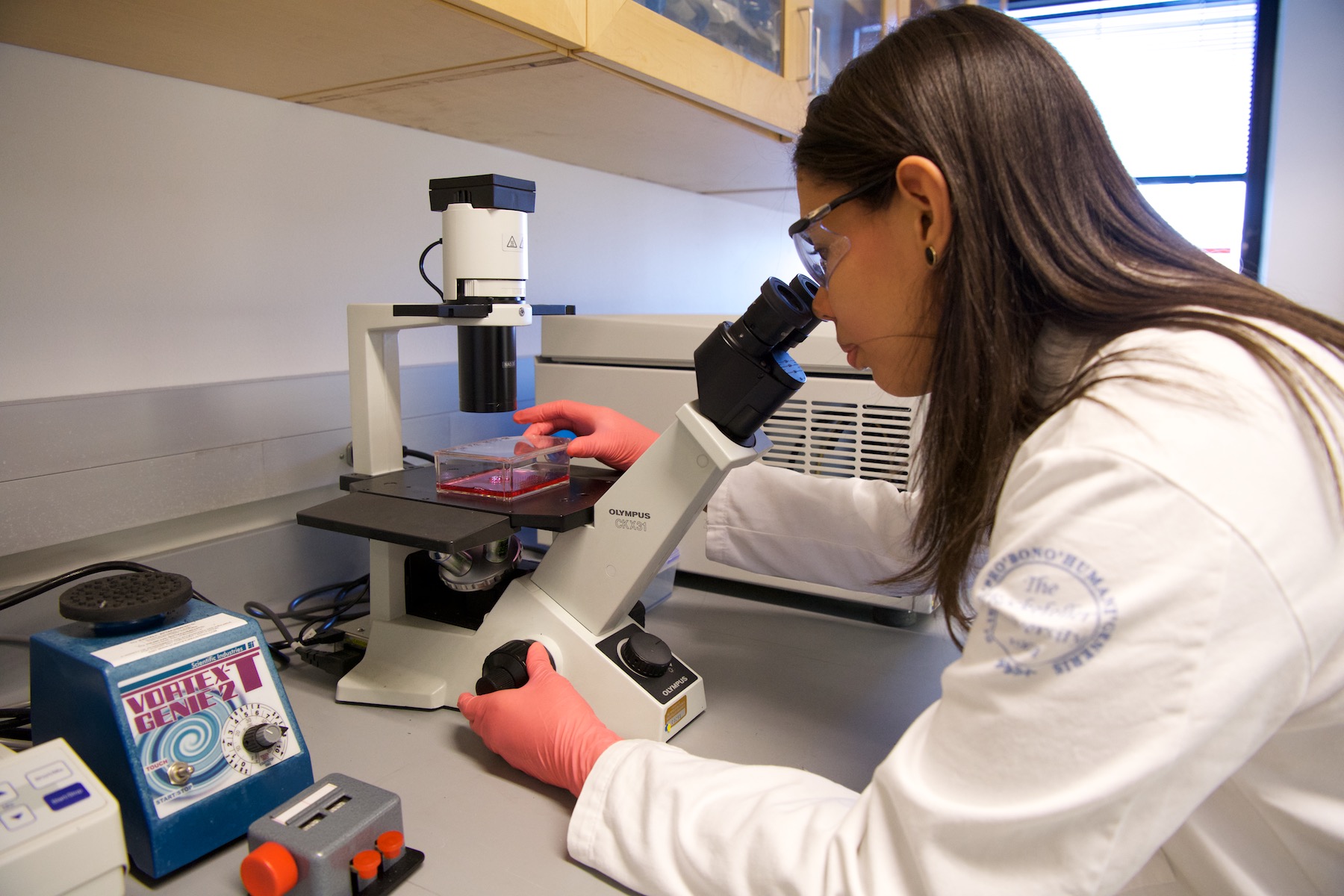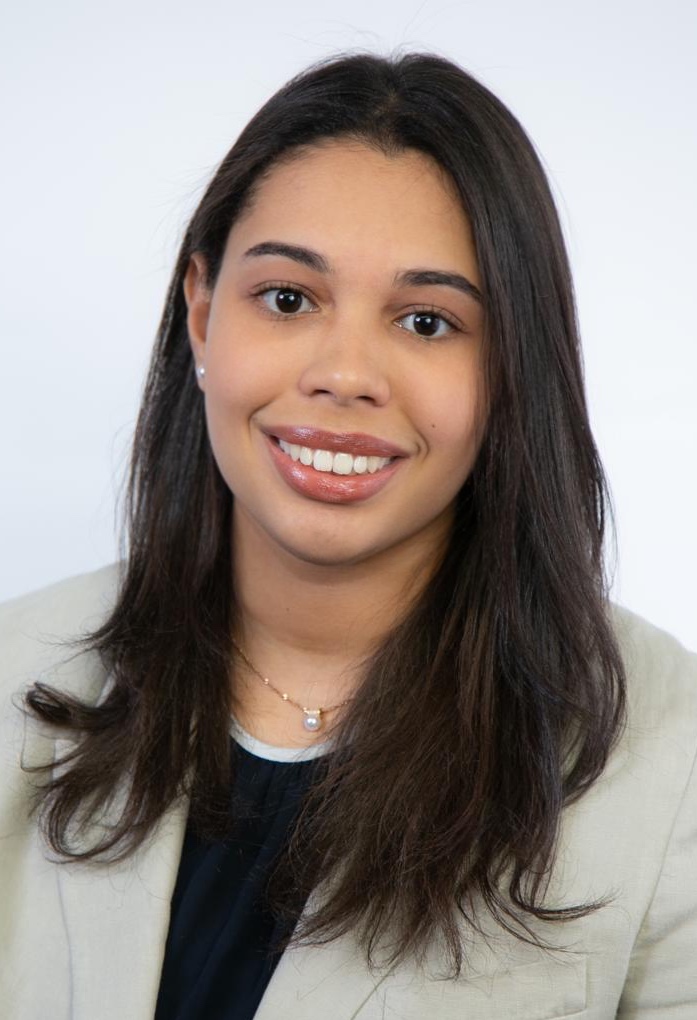
April 7, 2020
Claudia Melo (Science, 2019) has been preparing for a career in science by participating in research projects first at Borough of Manhattan Community College (BMCC/CUNY), and now at Brooklyn College — where she is both a Maximizing Access to Research Careers (MARC) and Collegiate Science Technology Program (CSTEP) scholar, and is completing dual degrees: a bachelor’s of science in biology, and a bachelor of arts in chemistry.
Her interest in science research and appreciation of its role as it relates to public health, has sharpened as the COVID-19 threat rages across the globe.
“Before this pandemic started, I was considering a career related to finding treatments to fight infectious disease because we know that bacteria and viruses are always evolving,” Melo says. “Now, I’m considering a Ph.D. in virology or infectious diseases, and in this way I might have more impact in finding cures against microbes that cause disease.”
From home remedies to a peer-reviewed research article
Melo moved to New York City in 2015 from the Dominican Republic, where her family made tea from the leaves of guava plants, to aid indigestion and alleviate symptoms of the common cold.
 An interest in the biological underpinnings of those home remedies led Melo to join a BMCC research team examining the medicinal power of plants, and led by Professors Adolfina Koroch, Christine Priano and Jose A. Fernandez Romero.
An interest in the biological underpinnings of those home remedies led Melo to join a BMCC research team examining the medicinal power of plants, and led by Professors Adolfina Koroch, Christine Priano and Jose A. Fernandez Romero.
Under Koroch’s guidance, she ground commercial samples of guava leaves, prepared extracts with solvents and determined the amount of antioxidants including phenolics and flavonoids that are present in the plant and could provide some protection against disease.
Melo also studied antibacterial and antiviral properties under the supervision of Priano and Romero, and joined the research team Romero led at the Population Council lab at Rockefeller University, and which focused on HIV- and HPV-related research.
In March 2020, an article Melo co-authored, “Antioxidant Capacity and Antimicrobial Activity of Commercial Samples Of Guava Leaves (Psidium guajava),” appeared in the peer-reviewed Journal of Medicinally Active Plants.
A focus on viral research and staying flexible as public health crises evolve
At Brooklyn College, Melo is working with Professor Guillermo Gerona-Navarro, testing methods to manipulate the environment inside a cell, so that it becomes inhospitable to HIV.
“In my lab at Brooklyn College, we are learning to synthesize peptides, or short proteins. Also, we are trying regulate the PRC2 complex inside the cell with the purpose of inducing a virus that is latent — meaning, inside the cell — to move outside the cell, to its lytic state. Once that happens, we can eliminate the virus with a drug to stop it from spreading.”
While participating in this and other projects, Melo has earned scholarships including the BNY Mellon transfer scholarship, Guttman transfer scholarship and MARC scholarship.
She recently took part in a Massachusetts Institute of Technology (MIT) workshop on programming languages for scientists, and in 2019 made presentations at both the Biomedical Research Conference for Minority Students in California and Botanical Society of America Conference in Arizona.
In Summer 2020, Melo will complete an internship and join a biomedical lab team through the Weill Cornell ACCESS summer internship program.
Looking back, she cites BMCC Professors Koroch, Priano and Romero as helping her envision a career in science. “At BMCC, I began to understand what research is,” she says. “I kind of fell in love with the lab and the environment.”
Working from home now under quarantine guidelines in response to the corona pandemic, she reviews literature in her field and meets virtually with classmates and research colleagues.
She advises aspiring scientists at BMCC and other colleges to stay flexible as research meets the demands of emerging public health crises around the world.
“Each time a virus mutates, it develops a mechanism that can offset the treatment we apply to stop it,” she says. “You have to constantly adapt the treatment, to keep up with the mutations. The corona virus mutates slowly, which makes it possible to create a vaccination for it. Eventually when I’m doing my Ph.D., I would like to join a lab that is working on that.”
STORY HIGHLIGHTS
- Claudia Melo (Science, 2019) has prepared for a career in science through research projects first at BMCC and now at Brooklyn College
- Her dual majors are biology and chemistry; she is both a Maximizing Access to Research Careers (MARC) and Collegiate Science Technology Program (CSTEP) scholar
- A peer-reviewed article she co-wrote on a project she entered at BMCC was just released in Journal of Medicinally Active Plants

